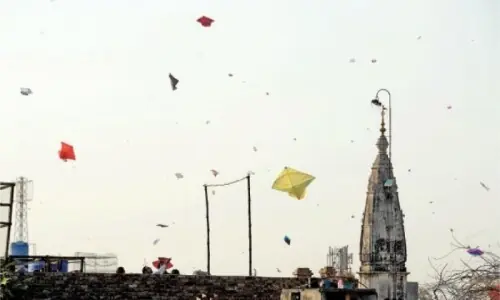ISLAMABAD, Oct 24: A senior judge of the Supreme Court on Wednesday asked if the judges who had taken the oath under the PCO (Provisional Constitution Order) could be blamed for deviating from the Constitution.
An 11-member bench of the Supreme Court, headed by Justice Javed Iqbal, is hearing petitions challenging the acceptance of Gen Pervez Musharraf’s nomination papers for the presidential election.
“What am I if I took the oath under PCO — an impostor?” Justice Khalil-ur-Rehman Ramday posed the question when Justice Faqir Mohammad Khokhar asked Barrister Aitzaz Ahsan, the counsel for Justice (retd) Wajhuddin Ahmed, to show that the oath that Gen Musharraf had taken as president on June 21, 2001, after removing President Rafiq Tarar was under the Constitution.
“I am not ashamed if I had taken the oath under the PCO,” Justice Ramday observed. “We have made our country, its institutions and the Constitution a matter of laughing stock in the world.”
He said that whatever ‘burble and verbal jugglery’ might be behind the changes made since 1977 in the Constitution, the country had been ruled under the Constitution.“But we sit here and waste days and weeks trying to understand (interpreting things),” Justice Ramday said.
Barrister Ahsan said the superior court judges had also taken oath under the PCO and enjoyed their constitutional terms till now as was done by the president after removing Rafiq Tarar. “Can we say judges are functioning in their office by way of an extra-constitutional measure or departing the Constitution?”
He was trying to establish that President Musharraf had already completed two constitutional terms as president by twice taking the oath of his office under the Constitution — first on June 21, 2001, after removing Rafiq Tarar; and secondly after the referendum on November 16, 2002. “Therefore, the president under Article 44(2) cannot stand for re-election for the third term. As chief executive, Gen Musharraf was functioning above the Constitution, but soon after becoming the president his actions were subjected to the Constitution, Barrister Ahsan argued.
At the outset, Justice Faqir Khokhar observed that prima facie the re-election of the president was subject to the provisions of the Constitution and not to the Esta Code (laws regulating the services of civil servants). He explained that the eligibility of a sitting president to participate in the re-election for the presidency was subject to the provisions of the Constitution and qualifications and disqualifications provided under any other law might not be applicable.
Barrister Ahsan argued that both the first and second terms of President Musharraf in his office should be considered elections.
At this, Justice Mohammad Nawaz Abbasi asked if his first term could be considered full term in the presidency when under the Constitution the president was elected for five years.
He said that if the arguments of the counsel were accepted, then the second term of the president would continue till 2009.
Justice Javed Iqbal also asked if a person who had availed the term in his office as president through supra-constitutional measures could be considered a valid term under the Constitution.
Mr Ahsan argued that a person being president could not demand for the rest of his term which he had not completed because of the imposition of martial law just after three years in the office. If that person remained president for 10 long years after taking another oath under an extra-constitutional measure, he could claim to complete the rest of the terms after lifting the martial law on the ground that he had not completed the remaining two years in the office.
At one stage, Justice Ramday asked Mr Ahsan if the appointment of judges by President Musharraf could be called supra-constitutional if the court found Gen Musharraf’s appointment as president to be extra-constitutional.
“Your examples are dramatic,” said Mr Ahsan. At this, Justice Ramday said: “Dramatic for some and traumatic for many.”
Mr Ahsan argued that Article 63 (disqualification to become member of parliament) equally applied to the president like Article 62 (qualifications for the member of parliament).

































